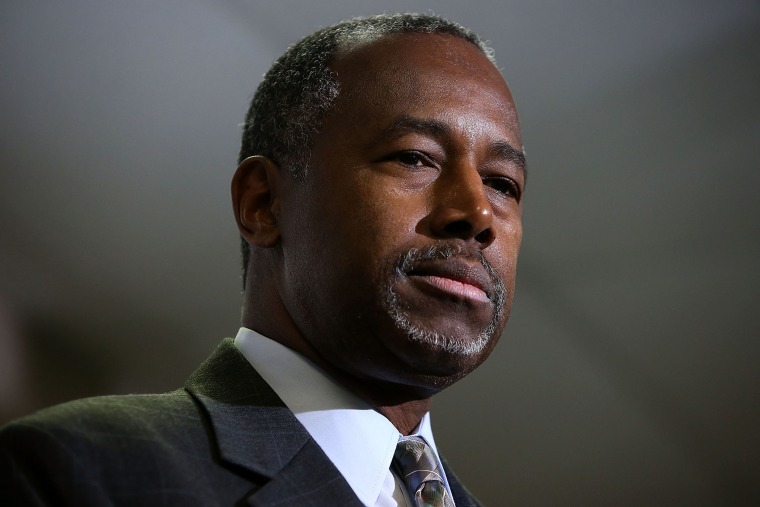We talked earlier about Ben Carson conceding that a story about his background was a lie: he's claimed for years that he was offered a "full scholarship" to the U.S. Military Academy at West Point and we now know that never happened.
The potential damage to his Republican presidential campaign is significant: Carson has never sought or held public office at any level, and he's based the entirety of his candidacy on his inspirational personal backstory and reputation for honesty.
His West Point lie, in other words, strikes at the heart of his entire campaign's central rationale. It's likely why some conservative media figures are starting to use phrases like "Carson is done" and "the beginning of Ben Carson’s end."
And that may yet prove to be true, but it's hardly a sure thing.
Note, for example, that Carson was recently caught lying quite brazenly about his background with a controversial nutritional-supplement company. As best as I can tell, the candidate's supporters didn't much care.
Maybe, the argument goes, any falsehood related to the military is qualitatively different and necessarily more damaging. Perhaps.
But George W. Bush falsely claimed to have "served in the U.S. Air Force" and falsely boasted that he'd "been to war." GOP voters didn't mind. Lindsey Graham, before eventually clarifying, had claimed many times to have been a "Gulf War veteran," which wasn't true, but which had no discernible effect on his career.
Ronald Reagan used to tell a story about having served as a photographer in a U.S. Army unit assigned to film Nazi death camps. In reality, this never happened -- Reagan never visited nor filmed any Nazi camps, but his blatantly false story didn't change Republicans' borderline-religious affection for the man.
Who knows, maybe Carson will face a far more severe backlash than some of these other Republicans who also told tall military-related tales. But a lot of pundits -- including me -- would have lost money in recent months betting on how Republican voters were going to react to Carson and his often odd antics.
I'd recommend holding off on any bold predictions now.
